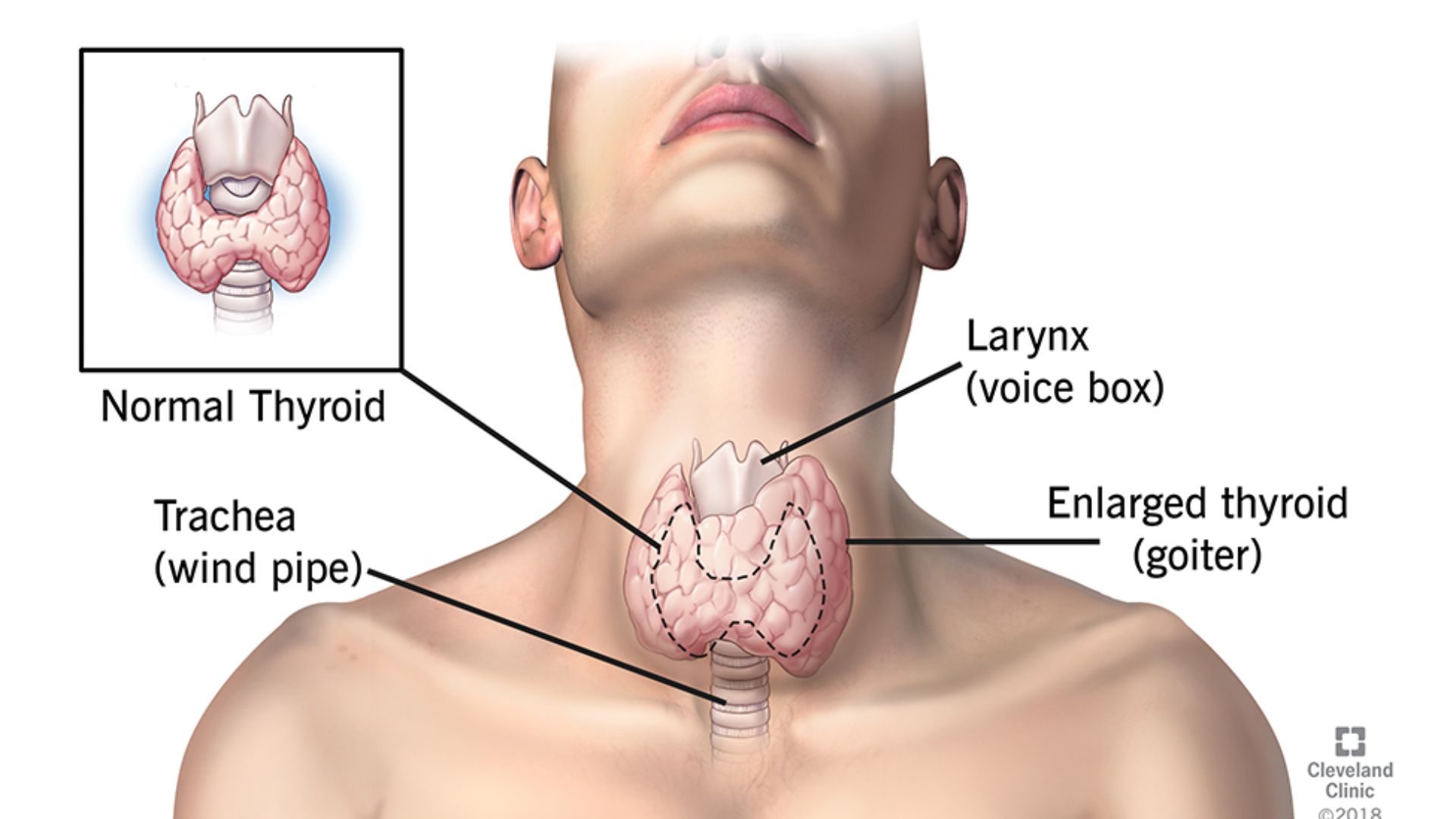Hashimoto’s thyroiditis causes hypothyroidism and may sound ominous.
But medical experts say the condition is actually not. That is, if it is treated and its management complied with. Named after Dr Haruku Hashimoto, it is an autoimmune disorder causing chronic inflammation of the thyroid gland.
Hashimoto thyroiditis affects 5 in 100 people in the United States, “but the number of people who have Hashimoto’s thyroiditis in Singapore is unknown”.
“We know it is more common in women than in men and more likely to develop in people who have other autoimmune conditions,” says Dr Chng Chiaw Ling, a senior consultant with the Endocrinology department at the Singapore General Hospital (SGH).
An estimated 5 to 10 per cent of Singapore’s population, or 1 in 10 residents here, is suspected to suffer from thyroid disorders, caused either by the over-function or under-function of the thyroid gland. Hashimoto’s thyroiditis is the most common cause of hypothyroidism in developed countries like Singapore, where there is sufficient intake of iodine in the diet.
Dr Chng says the condition can go undetected in its early phase when it is mild and the patient may have little or no symptoms of hypothyroidism.
“Since more people are going for health screening nowadays, which usually includes a blood test known as a thyroid function test, even mild hypothyroidism is detected through this test and the patient could be diagnosed earlier as a result,” she says.
Sudden, dramatic shift in overall health
The thyroid produces hormones that are vital for the body to function and keeps the metabolism working well. This impacts the energy a person has throughout the day as well as ones’ weight, and heart rate. A problem with the thyroid can affect the entire body, leading to severe health complications, if left unchecked.
In hypothyroidism, the thyroid produces too few hormones, resulting in the slowing down of many body functions. If left untreated, it can harm the sufferer.

“The symptoms of hypothyroidism can sometimes be non-specific and may be experienced by otherwise normal individuals or mimic other conditions. The best way to diagnose hypothyroidism is by performing a blood test which measures your thyroid hormone levels, which are thyroxine (T4) and thyroid stimulating hormone (TSH), ” Dr Chng says.
In hypothyroidism, the T4 level will be low and the TSH level will be high,
In approximately 95 percent of cases, hypothyroidism is due to a problem in the thyroid gland itself. The most common cause is Hashimoto’s thyroiditis, an autoimmune disorder where your body’s antibodies mistakenly attack your thyroid glands.
This results in an underactive thyroid where hormone production is significantly reduced. It happens more commonly among middle-aged women and may present as a goitre. The primary treatment is life-long thyroid hormone replacement.
“The exact reason why this happens is unknown at this point, although genetic and environmental factors are thought to play a role in its pathogenesis. The condition is not congenital, but people with Hashimoto’s thyroiditis often have family members who have thyroid diseases or other autoimmune diseases,” Dr Chng says.
To diagnose Hashimoto’s thyroiditis, a blood test that measures anti-peroxidase antibody (anti-TPOAb) is performed and the level of this antibody is raised for this condition.
Hashimoto’s thyroiditis may be mild initially and takes years to progress. Over time the condition impairs the ability of the thyroid gland to produce hormones and eventually causing hypothyroidism. The symptoms include constant fatigue, dry skin, hair loss, constipation and weight gain.
Celebrities, writer with Hashimoto’s Thyroiditis and leading normal lives
Dr Chng says not everyone with Hashimoto’s thyroiditis develops hypothyroidism and patients with normal thyroid function or very mild hypothyroidism may not require treatment.
“More severe hypothyroidism can interfere with the person’s daily life and without treatment, overt hypothyroidism can result in mental health issues and impaired heart function. It can also cause pregnancy complications if untreated during pregnancy,” she says.
Rarely, severe hypothyroidism may result in a life threatening condition known as myxedema coma, which leads to decreased mental status, hypothermia, and the slowing of function in multiple organs.

Actress-turned-video game streamer Julie Tan, who suffers from Hashimoto’s Thyroiditis, experienced a flare up of her medical condition in 2016 when she was not conscientious in taking her medication for half a year.
Revealing this to showbiz and lifestyle news portal 8Days then, Tan said that when she consulted her doctor, she was told her heart could have failed.
The treatment of hypothyroidism is thyroxine replacement therapy given as a small pill daily. Dr Chng says the exact dose is determined by several factors such as age, severity of condition and a blood test known as thyroid function test which include both T4 and TSH levels.
“There is no effective treatment specifically to reverse the chronic thyroid inflammation caused by Hashimoto’s thyroiditis. When Hashimoto’s thyroiditis results in overt hypothyroidism, it is usually permanent and treatment is life-long,” she adds.

Also opening up about her condition the same year, American Model Gigi Hadid took to Twitter and Instagram after New York Fashion Week in 2015 to defend herself against critics who labelled her “too curvy” and “too chunky” for the runway.
But in 2018, the reverse happened. The supermodel, who is believed to be currently dating actor Leonardo DiCaprio, was criticised for being “too skinny”. She turned to social media yet again to respond. She acknowledged that her body has changed since she began modelling at the age of 17, before she was diagnosed with Hashimoto’s disease.

“Those of u who called me ‘too big for the industry’ were seeing inflammation & water retention due to that [condition]. … Over the last few years I’ve been properly medicated to help symptoms including those, as well as extreme fatigue, metabolism issues, body’s ability to retain heat, etc,” she wrote on Twitter.
Her plight made it to Insider, an American independent online newspaper.
Another with Hashimoto’s thyroiditis is New York Times bestselling author, poet, editor, and podcaster Meghan O’Rourke. In a 2013 article in The New Yorker, she said, “I got sick the way Hemingway says you go broke, ‘gradually and then suddenly’”.
She had been ill for a long time “before any doctor I saw believed I had a disease”. O’Rourke even had to put up with brain fog, forgetting words or how to string a proper sentence. She was finally diagnosed properly “after years of doctors implying as much—that it was all in my head”.
According to the American Autoimmune Related Diseases Association (AARDA), it takes an average of nearly five years and five doctors before a sufferer is given the right diagnosis. “Patients can end up consulting different specialists for different symptoms: a dermatologist, an endocrinologist, an immunologist, a neurologist, a rheumatologist,” O’Rourke wrote, adding that those with autoimmune diseases would like to see the establishment of clinical autoimmune centres, where a single doctor could oversee a patient’s care, like that of a cancer centre.
RELATED: (Die)t Pills: The Dangers of Shortcuts to Weight Loss
Join the conversations on TheHomeGround Asia’s Facebook and Instagram, and get the latest updates via Telegram.












